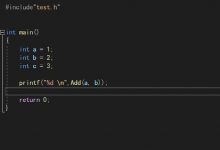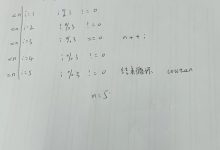刚刚看到一篇 C++ 博客,里面讲到用模板偏特化和
decltype()
识别值类别:
lvalue
glvalue
xvalue
rvalue
prvalue
。依照博客的方法试了一下,发现根本行不通。之后,我查阅了一下 cppreference.com 关于
decltype
关键字的描述,发现了
decltype((表达式))
具有以下特性:
- 如果 表达式 的值类别是
xvalue
,
decltype
将会产生
T&&
;
- 如果 表达式 的值类别是
lvalue
,
decltype
将会产生
T&
;
- 如果 表达式 的值类别是
prvalue
,
decltype
将会产生
T
。
也就是可以细分
xvalue
和
lvalue
,于是尝试将模板偏特化和
decltype(())
结合,发现这种方法可行。
#include <iostream>#include <type_traits>template<typename T> struct is_lvalue : std::false_type {};template<typename T> struct is_lvalue<T&> : std::true_type {};template<typename T> struct is_xvalue : std::false_type {};template<typename T> struct is_xvalue<T&&> : std::true_type {};template<typename T> struct is_glvalue : std::integral_constant<bool, is_lvalue<T>::value || is_xvalue<T>::value> {};template<typename T> struct is_prvalue : std::integral_constant<bool, !is_glvalue<T>::value> {};template<typename T> struct is_rvalue : std::integral_constant<bool, !is_lvalue<T>::value> {};struct A{int x = 1;};int main(){A a;std::cout << std::boolalpha<< is_lvalue<decltype(("abcd"))>::value << std::endl<< is_glvalue<decltype(("abcd"))>::value << std::endl<< is_xvalue<decltype(("abcd"))>::value << std::endl<< is_rvalue<decltype(("abcd"))>::value << std::endl<< is_prvalue<decltype(("abcd"))>::value << std::endl<< std::endl<< is_lvalue<decltype((a))>::value << std::endl<< is_glvalue<decltype((a))>::value << std::endl<< is_xvalue<decltype((a))>::value << std::endl<< is_rvalue<decltype((a))>::value << std::endl<< is_prvalue<decltype((a))>::value << std::endl<< std::endl<< is_lvalue<decltype((A()))>::value << std::endl<< is_glvalue<decltype((A()))>::value << std::endl<< is_xvalue<decltype((A()))>::value << std::endl<< is_rvalue<decltype((A()))>::value << std::endl<< is_prvalue<decltype((A()))>::value << std::endl<< std::endl<< is_lvalue<decltype((A().x))>::value << std::endl<< is_glvalue<decltype((A().x))>::value << std::endl<< is_xvalue<decltype((A().x))>::value << std::endl<< is_rvalue<decltype((A().x))>::value << std::endl<< is_prvalue<decltype((A().x))>::value << std::endl;}
输出
truetruefalsefalsefalsetruetruefalsefalsefalsefalsefalsefalsetruetruefalsetruetruetruefalse
所有的输出结果都符合预期。
 爱站程序员基地
爱站程序员基地


